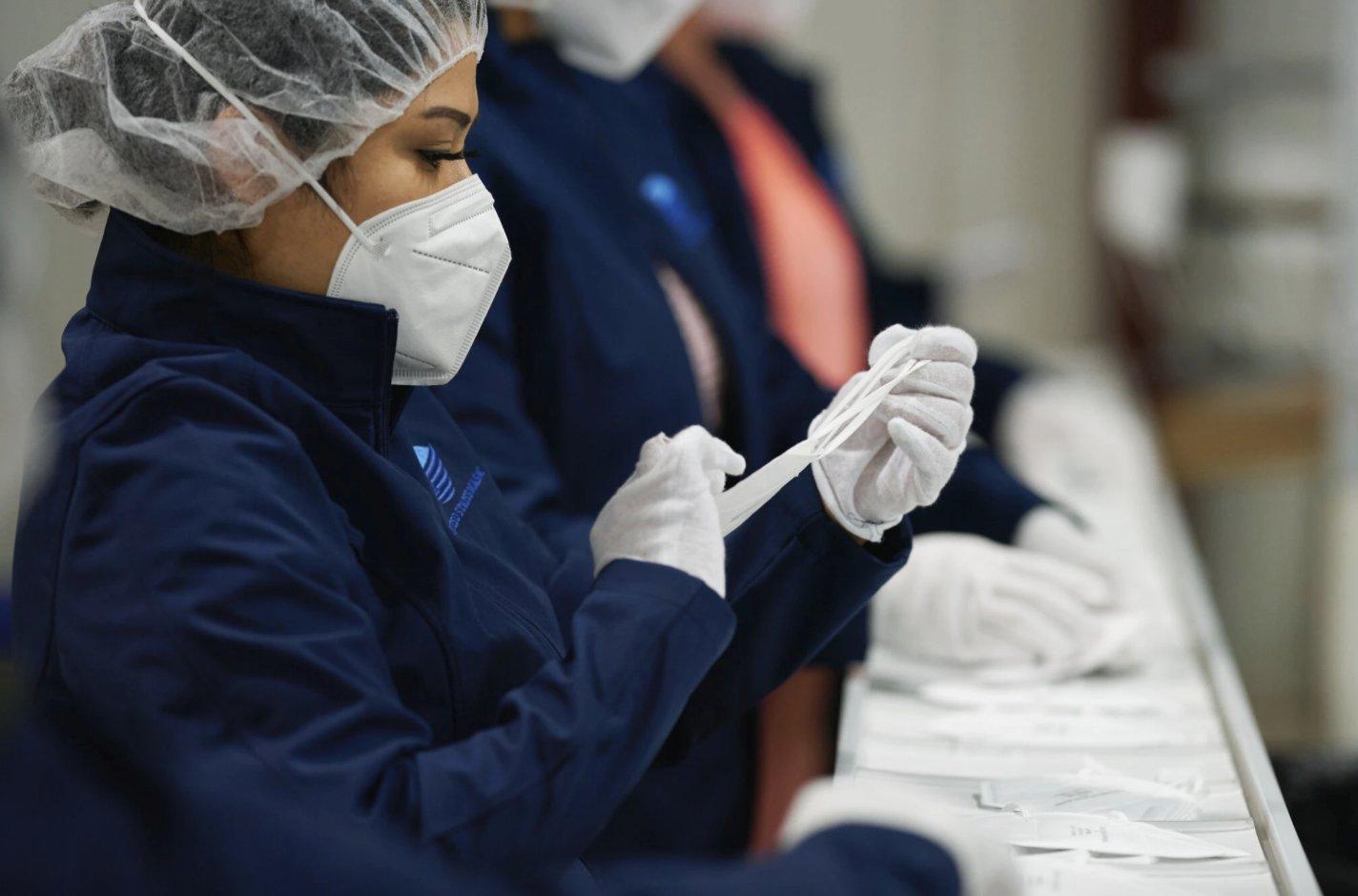

Leading scientific and medical experts are calling upon the Biden Administration to take immediate action to address inhalation exposure to the SARS-CoV-2 virus as a cornerstone of the COVID-19 pandemic response.
In a letter to the Biden administrations’ top officials heading the response, the experts from the fields of aerosol science, occupational health and infectious disease urge the Centers for Disease Control and Prevention (CDC), the Occupational Safety and Health Administration (OSHA) and other government agencies to fully recognize inhalation exposure as the primary way the virus spreads and to take immediate action to protect against this source of exposure.
Commending the Biden administration COVID-19 plan that ramps up the availability of life-saving vaccines and calls for widespread use of masks, stronger measures to protect workers and the public, the experts emphasize that to be successful the plan must also strengthen measures to address inhalation exposure to the virus.
The experts, including Dr. Don Milton, a professor at the University of Maryland School of Public Health, assert that the scientific evidence is clear: inhalation of small aerosol particles is one of the primary sources of exposure and transmission of the SARS-CoV-2 virus. CDC guidelines and recommendations are out of date and do not fully recognize inhalation exposure or include the necessary control measures to protect the public or workers from this mode of transmission.
Out of date and inadequately protective recommendations particularly impact people of color, many of whom work on the front lines and who remain at the greatest risk of COVID-19 exposure, infection and death.
“CDC guidance and recommendations do not include the control measures necessary for protecting the public and workers from inhalation exposure to SARS-CoV-2,” write the letter’s authors. “The failure to address inhalation exposure to SARS-CoV-2 continues to put workers and the public at serious risk of infection. People of color, many of whom work on the front lines in essential jobs, have suffered – and continue to suffer – the greatest impacts of the COVID-19 pandemic.”
The emergence of more transmissible virus variants makes strong action to control the virus even more urgent: “While COVID-19 infections and deaths have started to decline in recent weeks, they remain at a very high level and, unless strengthened precautionary measures are implemented, the new variants will likely bring an explosion in new infections.”
To address and limit transmission via inhalation exposure, prevent COVID infections and deaths and bring the pandemic under control, the experts call upon the Biden administration to take immediate actions, including:
- CDC must make clear to the public that inhalation exposure through small aerosols is a principal way the virus spreads and update its policy and guidelines to address small particle inhalation in public and workplace settings, and must develop guidelines for better quality face coverings for the public.
- CDC and OSHA must issue recommendations and requirements for the use of NIOSH-approved respirators – like N95 filtering facepiece respirators - for all healthcare workers and other workers at high risk, including those in meat and poultry, corrections and transit operations. A year into this pandemic we must provide appropriate respiratory protection to all workers who need it.
- OSHA must issue an emergency workplace standard on COVID-19 that requires an assessment of inhalation risk, adoption of controls including enhanced ventilation, physical distancing, effective respiratory protection for workers in high-risk jobs, and high-quality barrier face coverings and masks for other workers exposed to the virus on the job.
- The federal government must use the Defense Production Act to ramp up the production of respirators and high-quality barrier face coverings.
Under President Biden’s leadership, the country is moving forward to tackle this pandemic. To be successful, we must finally recognize inhalation exposure as the primary way this virus spreads and take the needed actions to protect the public and workers from this deadly virus.
List of scientific and medical expert signatories:
- Rick Bright, PhD, Former Director of BARDA, Dept of Health and Human Services
- Lisa M. Brosseau, ScD, CIH, Professor (retired), Research Consultant, Center for Infectious Disease Research and Policy (CIDRAP), University of Minnesota
- Lynn R. Goldman, MD, MS, MPH, Michael and Lori Milken Dean and Professor of Environmental and Occupational Health, Milken Institute School of Public Health, George Washington University
- Céline Gounder, MD, ScM, Clinical Assistant Professor, Department of Medicine, NYU Grossman School of Medicine & Bellevue Hospital Center
- Jose-Luis Jimenez, PhD, University of Colorado at Boulder
- Yoshihiro Kawaoka, DVM, PhD, Professor, University of Wisconsin-Madison School of Veterinary Medicine and University of Tokyo
- Linsey Marr, PhD, Charles P. Lunsford Professor, Department of Civil Engineering, Virginia Tech
- David Michaels, PhD, MPH, Professor, Environmental and Occupational Health, Milken Institute School of Public Health, George Washington University
- Donald K. Milton, MD, DrPH, Professor of Environmental Health, University of Maryland, College Park School of Public Health and Professor, Internal Medicine, University of Maryland, Baltimore School of Medicine
- Michael Osterholm, PhD, MPH, Regents Professor, McKnight Presidential Endowed Chair in Public Health and Director, Center for Infectious Disease Research and Policy (CIDRAP), University of Minnesota
- Kimberly Prather, PhD, Distinguished Chair in Atmospheric Chemistry and Distinguished Professor, Dept. of Chemistry and Biochemistry, Scripps Institution of Oceanography, University of California San Diego
- Robert T. Schooley, MD, Professor of Medicine, Division of Infectious Diseases and Global Public Health and Co-Director, Center for Innovative Phage Applications and Therapeutics, University of California San Diego
- Peg Seminario, MS, Safety and Health Director (retired), AFL-CIO